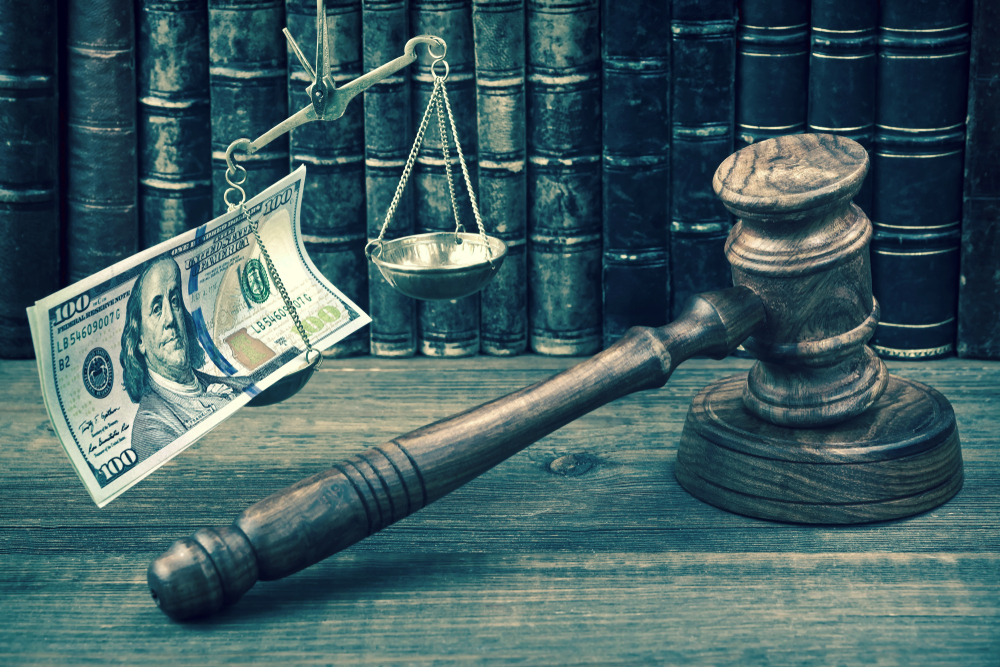Can you define “bankruptcy” in a legal sense?
Did you know that “bankruptcy” does not mean you do not have any money?
Now, if you picture the word “bankruptcy,” you would not be picturing anything happy, uplifting, or positive. You’d be picturing someone sad, hopeless, and doesn’t have any money to their name.
We are living in times of great uncertainty and anxiety. Some people have been impacted more than others, but everyone has felt the effects of the world we find ourselves in. One of the most damaging and common effects of these challenging times is our finances.
- Businesses that used to be steady in their profit are now struggling to make ends meet.
- People are taking salary cuts, being furloughed, or even losing their jobs.
- Unexpected medical bills, from either COVID-19 or something else, have created heartache, stress, and hardship for hundreds of thousands of people.
No matter who you are, you have felt the negative financial effects, and you are probably feeling lost or worse – hopeless.
When people start to struggle financially, filing for “bankruptcy” doesn’t usually seem like an option. They’ll strive to work hard to avoid it, but they are missing out on a potential opportunity to improve their situation.
“Bankruptcy” doesn’t mean you are admitting you are a failure, and it doesn’t make you a bad person.
We want to share why filing for bankruptcy may be a good idea.
How is bankruptcy defined?
Before we get into when you may want to consider filing for bankruptcy, let’s define it.
Bankruptcy is a court order that discharges some (but not all) of your debts if the court finds you have no means to pay back the debt you are currently in.
Is there only one way to file for bankruptcy?

There are two main ways to file for bankruptcy – Chapter 7 bankruptcy or chapter 13 bankruptcy.
Filing for Chapter 7 bankruptcy, most of your assets (things you own that have value to the economy, like a house or car) are liquidated (sold to generate money to pay off your debt).
People can file for Chapter 7 due to reasons like divorce, unexpected and expensive medical bills, and unemployment (making this more relevant in today’s times).
Chapter 7 bankruptcy is considered a fresh start because it can quickly resolve almost all your debt. However, it is important to remember that assets like your car or house will be sold to pay off your debt. If you have personal assets that you cannot part with for whatever reason, then Chapter 7 may not be an option.
Chapter 13 bankruptcy is different from Chapter 7 because it allows you to keep all your property and repay lenders with less than the amount owed. The catch with Chapter 13 bankruptcy is that you must meet certain qualifications.
How can bankruptcy help me?

If you’ve been affected by economic hardships, you are already feeling the stress of not being able to make ends meet. With seemingly no end in sight, you must start planning for your future.
Bankruptcy can help by offering you a fresh start. For example, Chapter 7 bankruptcy can eliminate debt such as medical bills, credit cards, and personal loans.
Filing for bankruptcy also puts a stop on all collection efforts (where agencies are hired by lenders to ensure you pay back the money owed or face legal/financial consequences). This hold on collections and any potential legal situations like lawsuits give you a chance to focus on improving your situation instead of constantly worrying about it.
What’s my next step?

If you are considering filing for bankruptcy, you need to speak with a lawyer or financial advisor (like at your bank). They will review your history and provide options for how to proceed. If they are not the person who can work with you, they will refer you to someone to help with your situation. Regardless of your situation, lawyers and trusted financial experts can guide you on getting back on the right track for your finances.
We must start re-thinking how we perceive bankruptcy. Bankruptcy is not a mark of failure – many honest and hard-working people have had to file for bankruptcy simply because they found themselves in a situation where they could not repay what they owed. The process of bankruptcy was created to help people who needed it – it was not created as a method to shame anyone.
Filing for bankruptcy does not have to be a sad mark on your life – it can be the turning point that causes you to shift your focus from passive to active, from helpless to hopeful. Contact a financial advisor today and discuss your options for working towards a financially healthy future.





Leave A Comment